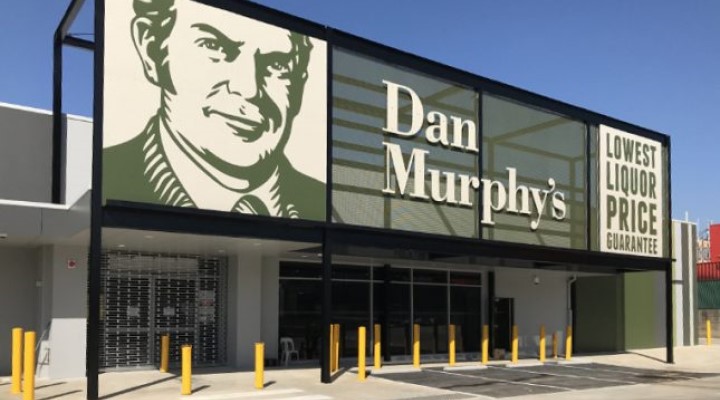Businesses that offer jobs to Aboriginal and Torres Strait Islander people but fail to listen to and acknowledge their point of view have been heavily criticised by an advocacy group for Indigenous communities. Speaking at The Indigenous Affairs Committee inquiry into participation of Indigenous Australians in business on Thursday, John Paterson, CEO at Aboriginal Peak Organisations Northern Territory (APO NT), said it’s crucial that businesses acknowledge these voices. “Participat
icipation opportunities for Aboriginal and Torres Strait Islander people are greatly helped when companies respect our voices and make decisions that improve our health and well being,” Paterson said.
“There are organisations who support these goals, but sadly, there are some that do not. We do not support corporate developments that may provide some jobs but do not support the health and well being of local communities.”
Paterson said Woolworths’ plans to build a Dan Murphy’s store next to three ‘dry’ aboriginal communities in Darwin against the wishes of local people and Aboriginal organisations is one such example.
Last week, an open letter signed by more than 30 health and community organisations called on Reconciliation Australia to revoke Woolworths’ Reconciliation Action Plan over what Paterson labelled “disrespect for our organisations, and our people”.
He said the retailer has not listened to Indigenous communities and called on those present to question Woolworths on the move.
“We urge you to ask why they are pushing so hard to make people suffer by flooding in communities with a substance that’s killing our people,” Patterson told the Committee.
“If Woolworths proceeds we will see more alcohol-fuelled violence in our community, we will see more domestic and family violence, more self harm, and more fetal alcohol spectrum disorder. And we will even see more of our people unemployed. Employment is critical to the well being of our community, but Woolworths’ plan to build one of the biggest bottleshops in the country on our doorstep will stop too many people from achieving this potential.”
Review underway
In December, Woolworths Group announced an independent panel review into Endeavour Group’s proposal to develop the retail outlet in Darwin, with Danny Gilbert AM, director of the Business Council of Australia and advocate for Indigenous Australians, named as chair.
Rachel Elliott, senior manager – government relations at Woolworths Group, told the Committee that the panel will provide a report to the Woolworths Board by the end of March.
“It is anticipated that the review will be broad ranging and include a review of the adequacy and nature, including both breadth and depth of stakeholder engagement relevant to the development, including with respect to public health concerns,” Elliott said.
The panel will also examine the extent to which stakeholder concerns have been factored into decision-making regarding the development, and best practice as it might apply to the sale of alcohol in the area.
Industry leader
Woolworths was invited to speak at the hearing as an industry leader in Indigenous recruitment. The supermarket giant employs close to 5000 First Nations people. Since partnering with government under the Employment Parity Initiative, more than 2800 Indigenous people have been offered employment with the business.
Rachel Mead, head of diversity & inclusion at Woolworths, said this diversity brings a “rich culture, personality and a vibrancy” to the business.
“Our focus on greater diversity has increased cultural competency in our stores and helped us to break down barriers around understanding reconciliation,” Mead said.
Currently, 4921 Aboriginal and Torres Strait Islander team members are employed in entry-level positions (Level 1) at Woolworths. There are 112 employed at Level 2, 26 at Level 3, and two at Level 4.
While many of the Indigenous people employed at Woolworths have been recruited through mainstream avenues, a dedicated program is helping the retailer to reach those that may have more barriers to employment.
Sixty five per cent of roles that have been offered as part of Woolworths’ Resourcing the Future program, run in partnership with Diversity Dimensions, are in regional and remote areas of Australia.
“I think that having a focused program that is targeting Aboriginal and Torres Strait Islander people specifically is very important,” Mead said.
“Also, what we have found incredibly important is creating an environment within the store to ensure that they are welcoming and understanding of the different cultural complexities that would come along with being an Aboriginal person, so cultural awareness training for the stores where team members might be joining us via this program is very important.”
Pre-employment training is provided for newcomers and Mead stressed the importance of ongoing mentoring support for participants of the program.
“[Mentoring] has a huge impact on success, and also contributes to sustainable employment. So, helping support people through that initial six months, particularly with mentoring, is very important I think for ensuring that people stay in employment.”
Diversifying supplier network
Woolworths also pointed to plans to better diversify its supplier relationships and acknowledged that it has a lot more more to do in this space.
“We have acknowledged that this is an opportunity for us to diversify our supplier relationships … we don’t think we are by any means perfect or have it right in the space but we are investigating the path forward,” Elliott told the Committee.
Currently, Woolworths has 14 Indigenous supply partners on a permanent basis with another to be onboarded shortly.
“We have set an enterprise spend target of 20 per cent year on year growth over the next three years with Indigenous suppliers. This year, we are about 50 per cent true to our increased target spend … so well and truly on track to meet that targeted increase.”

